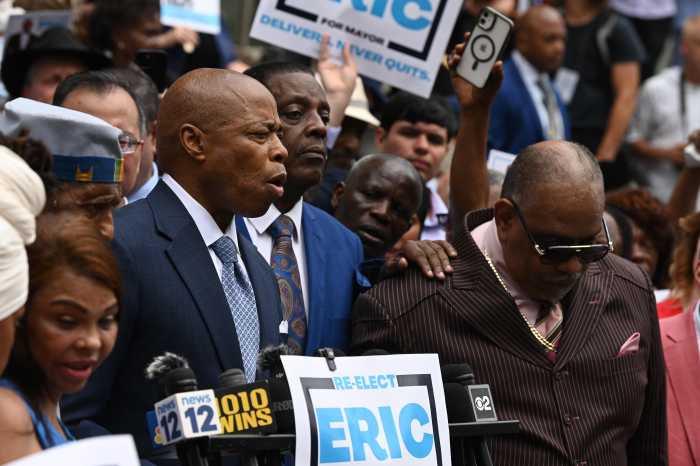Ohio Marriage Amendment may preclude domestic violence protection for unmarried couples
The amendment banning same-sex marriage that Ohio voters approved last November includes two sentences. The first sentence simply prohibits same-sex marriages. But the second sentence reads, “This state and its political subdivisions shall not create or recognize a legal status for relationships of unmarried individuals that intends to approximate the design, qualities, significance or effect of marriage.”
During the election campaign, opponents of the amendment warned that adoption of this second sentence would have severe consequences for the state’s same-sex couples.
Those pushing for the amendment’s passage denied that the measure would negatively impact on statutes such as the Domestic Violence Law, whose provisions apply to “a spouse or a person living as a spouse.” For many years, Ohio courts have interpreted that language to offer domestic violence protection to members of a broad array of couples, including unmarried cohabitants, both heterosexual and heterosexual.
Since November, criminal defense lawyers in Ohio have argued that the domestic violence statute may not be used in cases involving unmarried couples, and judicial decisions do not clearly indicate whether or not the marriage amendment may have partially invalidated the Domestic Violence Law.
Lining up in support of continued application of the Domestic Violence Law to unmarried partners are Cuyahoga County Municipal Court Judge Ronald Aldrine, in Cleveland, who rejected a motion to dismiss domestic violence charges on March 10, and Montgomery County Common Pleas Court Judge Dennis J. Langer, in Dayton, who ruled on March 11 that the unmarried parents of a child were covered by the law, although Langer avoided discussing whether the Amendment was applicable.
On the other side are two other Cleveland judges, Cuyahoga County Common Pleas Judge Stuart A. Friedman, who on March 23 dismissed felony domestic violence charges against Frederick Burk, who had been accused of assaulting his female domestic partner, and Cleveland Municipal Court Judge Lauren C. Moore, who issued a similar ruling on March 24.
In his ruling, Friedman allowed prosecutors to immediately re-file a misdemeanor assault charge against Burk, and prosecutors have appealed his dismissal of the felony domestic violence charge. Meanwhile, a state lawmaker, Rep. James T. Raussen, a Springfield Republican, has said that he may add language to a pending bill to attempt to preserve protection for unmarried domestic violence victims, but a legislative fix would be questionable given that Friedman’s decision was based on a constitutional analysis of the new amendment.
Friedman issued a lengthy written opinion explaining his decision. He found that the second sentence of the marriage amendment “imposes a specific prohibition upon the state and all its political subdivisions. The power to define is the power to create, to limit, to expand and to destroy,” adding, “the Ohio Constitution now appears to threaten the limited protections previously available to them by law.”
Reviewing the decisions that had been issued under the Domestic Violence Law prior to the enactment of the Marriage Amendment, Friedman found that the law’s application to unmarried partners had been based on the idea that people living in a quasi-spousal relationship should be protected precisely because for purposes of such protection, “cohabiting is a relationship that in all essential respects approximates the significance or effect of marriage.”
Friedman rejected the prosecutor’s arguments in favor of preserving this coverage, finding that the “state’s position flies in the face of the unambiguous language of the statute itself,” which clearly distinguished between mere roommates, to whom the law would not apply, and partners living in a spousal type of relationship, to whom it would apply.
“The only logical rationale to justify such a distinction,” he asserted, “is that the legislature intended to provide a greater degree of protection for family or household members, based solely upon that relationship and, it follows, the victims’ increased vulnerability resulting from such relationship.”
If the state’s constitution now forbids recognizing a non-marital relationship as being “spousal” for any purpose, then the Legislature would be precluded from extending protection to unmarried couples on this basis.
gaycitynews.com



































